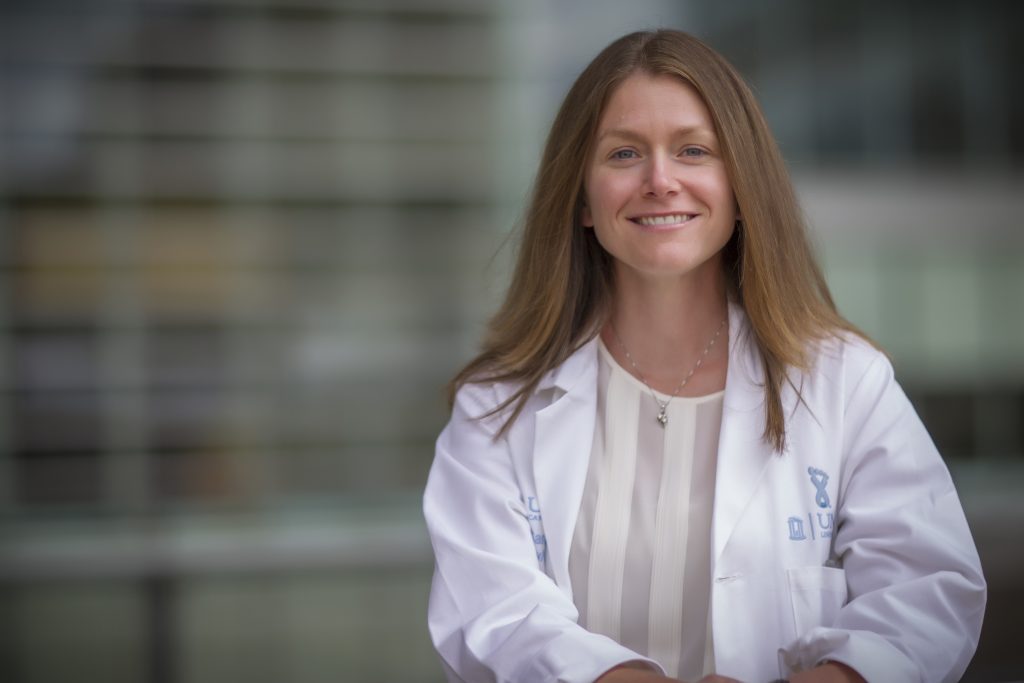UNC Lineberger’s Hanna K. Sanoff, MD, MPH, was co-author of a viewpoint in JAMA Oncology that detailed strategies for expanding the concept of precision oncology beyond the use of molecular biomarkers for drug delivery to include other aspects of health care.

“We are often focused on bringing great science to patients, but sometimes we forget to do the simplest things. We need to remember to focus on patients as individuals and tailor care, not just in drug delivery, but their care, and how we treat them, in a more individual fashion,” said Sanoff, who is the clinical medical director of the North Carolina Cancer Hospital and associate professor in the UNC School of Medicine Division of Hematology/Oncology. She co-wrote the viewpoint with S. Yousuf Zafar, MD, MHS, of Duke Cancer Institute and the Duke-Margolis Center for Health Policy.
In addition to finding biomarkers of drug response to help guide treatment decisions, the researchers reported on strategies to apply precision approaches to patients, doctors and data as well as pharmaceutical companies in order to curb rising costs and improve care.
Suggested strategies for patient care included using patient-reported symptoms and side effects to track patients in real-time outside of clinic visits, using data to better deliver oncology navigation services, and creating opportunities for patients to receive specialized oncology care in outpatient visits after hours.
“(We need to) make sure we’re caring for the whole patient to address screening, financial toxicity and doing outreach between visits when patients might be most symptomatic to make sure they have access to what they need,” Sanoff said.
Their proposed strategies also address payment and documentation requirements to reduce physician burnout and improved use of electronic data to inform “value-based care.”
“Often when we’re talking about precision medicine, we’re talking about the gold standard of cancer care where we have a unique mutation in a tumor and a unique drug that treats it, and we’re able to have a good cancer outcome,” Sanoff said. “We want to take that same approach, and … figure out what each patient needs so we can meet each patient where they are in order to get them better care.”
